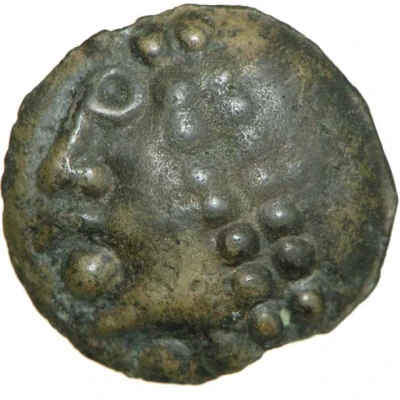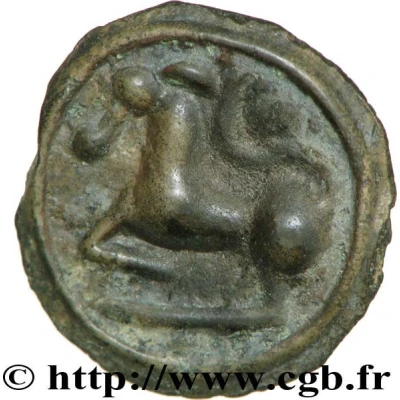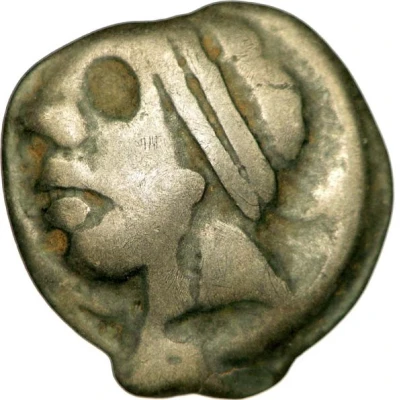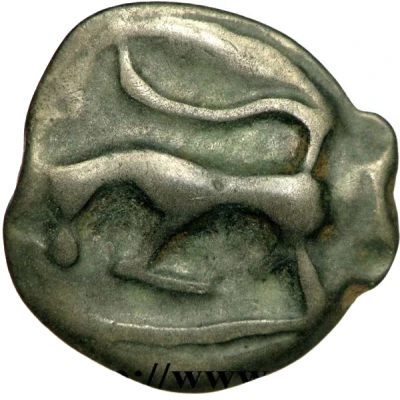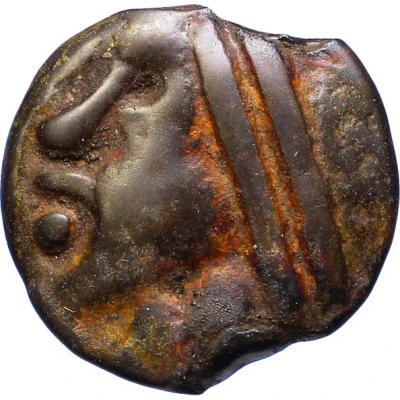
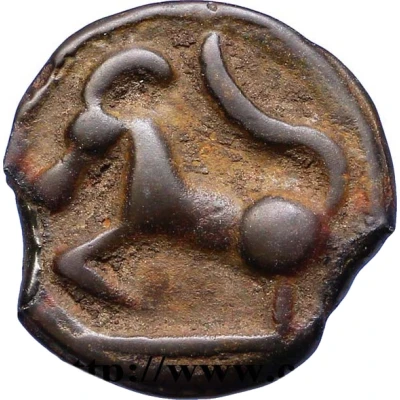

© CGB
Potin with large helmeted head and smooth headband 100 BC - 10 BC
| Potin | 4.51 g | 18.5 mm |
| Issuer | Sequani (Gallia Celtica) |
|---|---|
| Type | Standard circulation coin |
| Years | 100 BC - 10 BC |
| Composition | Potin |
| Weight | 4.51 g |
| Diameter | 18.5 mm |
| Shape | Round (irregular) |
| Technique | Cast |
| Demonetized | Yes |
| Updated | 2024-10-09 |
| Numista | N#70126 |
|---|---|
| Rarity index | 80% |
Reverse
Bull charging left, tail up.
Interesting fact
The Potin coin was used by the Sequani tribe in Gallia Celtica (modern-day France) during the 1st century BC. The coin features a large helmeted head and a smooth headband, which are distinctive features of Celtic coinage from this region and time period. The use of Potin, a copper alloy, was a common practice among the Celts, as it was a readily available and durable material for coin production. The fact that this coin has survived for over 2,000 years and is still studied and admired today is a testament to the craftsmanship and durability of ancient Celtic coinage.
